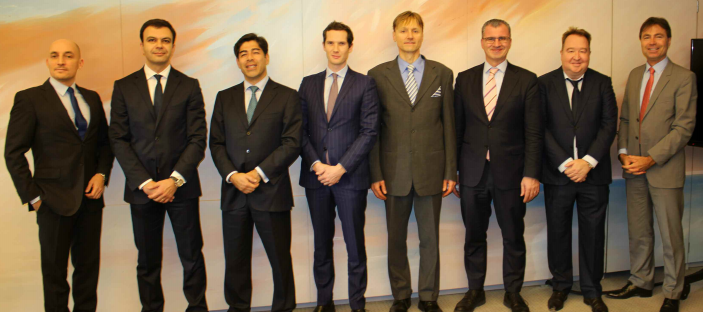Given the less attractive outlook on most traditional “pure beta” asset classes and investment styles, hedge funds and alternative investments are regaining interest from Swiss investors: pensions, banks, independent asset managers and private clients. Risk premia become increasingly tight, and with that the risk of a correction increases. The need for diversification is high.
Swiss pension plans have on average 5% invested in alternatives, well below the regulatory soft limit of 15%. 1% is in private equity, about 2% is in hedge funds, and the remaining is deployed in other asset classes categorized as alternatives according to the Swiss pension plan regulation such as commodities, insurance-linked securities, senior secured loans and private debt. The allocation to alternatives of semi-institutional investors such as family offices is more sizable and consists on average of 20% private equity and 8% hedge funds.
High performance hedge funds, structural changes and questions around PE
In this Geneva Roundtable, we introduce you to a selection of interesting managers. For example, Hilmi Ünver represents one of the oldest funds of hedge funds called Haussmann. Launched in January 1974, the fund has been around for 43 years now with a net compounding performance of 13.8% since inception. Commodity newcomer Zafiro Capital, founded by veteran manager Stephen Smethurst, is up 71% gross in 2016, and Dr. Karl Sarkans’ Geneva Global Macro Fund is up 90% net in 2016 after having made 30% in 2015 and 75% in 2014.
The Roundtable also addresses structural changes within hedge funds. While total industry AUM still seems to go up, we also see hedge fund managers closing, which means in some cases less competition, leading to greater dispersion and better opportunities for certain type of managers. Meanwhile, investors and consultants say that it’s actually private equity which is a big question mark (page 8), because valuations are probably even richer than in listed equities with so much money chasing limited opportunities.
Finding the right balance between passive and active investing
Investors shouldn’t underestimate some of the unintended consequences of the unabated money flows into passive investments. Of course, there is a cyclical aspect to that as well in the sense that you need to be massively investing into passive investment when markets are efficient and it’s a cheap way to get beta. However, the more you invest into passive investments, the more distorted the market becomes until at one point large inefficiencies can be exploited by active managers (page 15). Hedge funds are the most active investors because they can go long and short, and they should be the ones who can benefit the most from large dislocations and inefficiencies.
The Opalesque Geneva Roundtable, sponsored by Eurex, included the following experts:
– Dominique Grandchamp, Head Investment Consulting Switzerland, AON
– Hilmi Ünver, Head of ultra-high-net-worth and family office, Notz Stucki
– Clément Leturgie, Business development & investor relations, Lombard Odier Asset Management
– Dr. Karl Sarkans, Portfolio Manager & Director, Geneva Capital
– Vincenzo Zinnà, Equity and Index Sales, Eurex
– Stephen Smethurst, CEO, Zafiro Capital
– Sherban Tautu, Head of Investment Advisory, Banque Syz & Co

The group also discussed:
– Example of an alternative risk premia mix that is working quite well and can deliver attractive returns over the medium term (p. 9) (p. 10)
– Which are the four main ways to improve bond yield?
– What does a balanced account of a typical Swiss ultra high net worth client look like? (p. 11)
– Manager selection: How do Swiss allocators select funds? (pp. 13, 23) In demand: Cross assets specialists and managers with a clear technological edge (p. 16)
– Do second or third generation managers spinning out of some well-known established hedge funds mostly succeed or mostly fail? (p. 13)
– What is the potential problem with robo-advisers? (pp. 13-14) Are robo-advisers “smart”? Will disaster strike? (p. 20)
– Do quants distort fundamentals? (p. 15)
– How is an asset-liability study performed? (p. 17)
– Outlook for oil, Palladium and precious metals (p. 21)
– What is Eurex’ ISA Direct offering? How can volatility futures hedge portfolios? (p. 23)
– Are equity valuations justified? (p. 24)
– How can fees be more aligned between managers and investors? (pp. 24-26)
Access the Opalesque Roundtable Series – Geneva 2017
The Opalesque Roundtable Series offers unparalleled intelligence on the most important global hedge fund jurisdictions and their players. The Roundtable Series is a free publication from Opalesque and is continually updated.